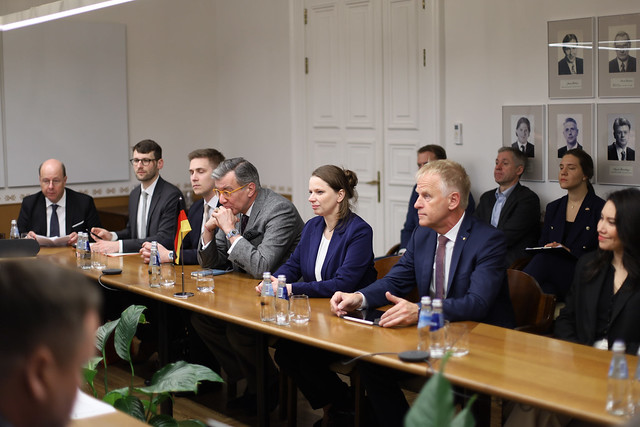Translated using ChatGPT service.
Today, April 3, the Minister of Economics, Viktors Valainis, met with Hamburg's Minister of Economy and Innovation, Melanie Leonhard, who is visiting Riga with a delegation of over 50 entrepreneurs. They discussed opportunities for economic cooperation between Latvia and Hamburg in various fields, particularly port development, transport, energy, and modern technologies.
"I had a series of constructive discussions with the German delegation, during which I presented the investment opportunities offered by Latvia. We have invested a lot of effort to help German entrepreneurs get to know Latvia better, and the topics raised by the Hamburg delegation clearly demonstrated this. In addition to traditional industrial cooperation, Latvia and Germany have a very high potential for collaboration in port logistics, energy, and ICT technology projects. I emphasized to potential German investors that we are working hard to make Latvia's economy one of the fastest-growing and most competitive in the region in the coming years. The German representatives seemed genuinely interested in what is happening in Latvia, and I believe there is a basis to expect specific investment projects in the near future," emphasized V. Valainis after the meeting.
The Minister of Economics also highlighted Latvia's "green" electricity balance – 70-80% of the electricity produced in our country comes from the Daugava hydroelectric power plant cascade. This could make Latvia attractive to German investors looking for opportunities to develop "green" manufacturing. Latvia also has many potentially advantageous areas to offer for the construction of new factories, including ports, as well as opportunities to provide special support at the government level and reduce bureaucratic obstacles for large investment projects.
Both parties concluded during the discussions that Latvia could learn a lot from the experience of the Port of Hamburg, Germany's largest port, in reorienting its ports from transit to logistics, innovation, and industry, as well as domestic rail freight, and vice versa. The fundamental idea is that a modern port is no longer just a cargo transshipment point, but an entire business ecosystem that includes logistics, manufacturing, and innovation.




